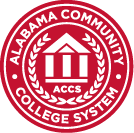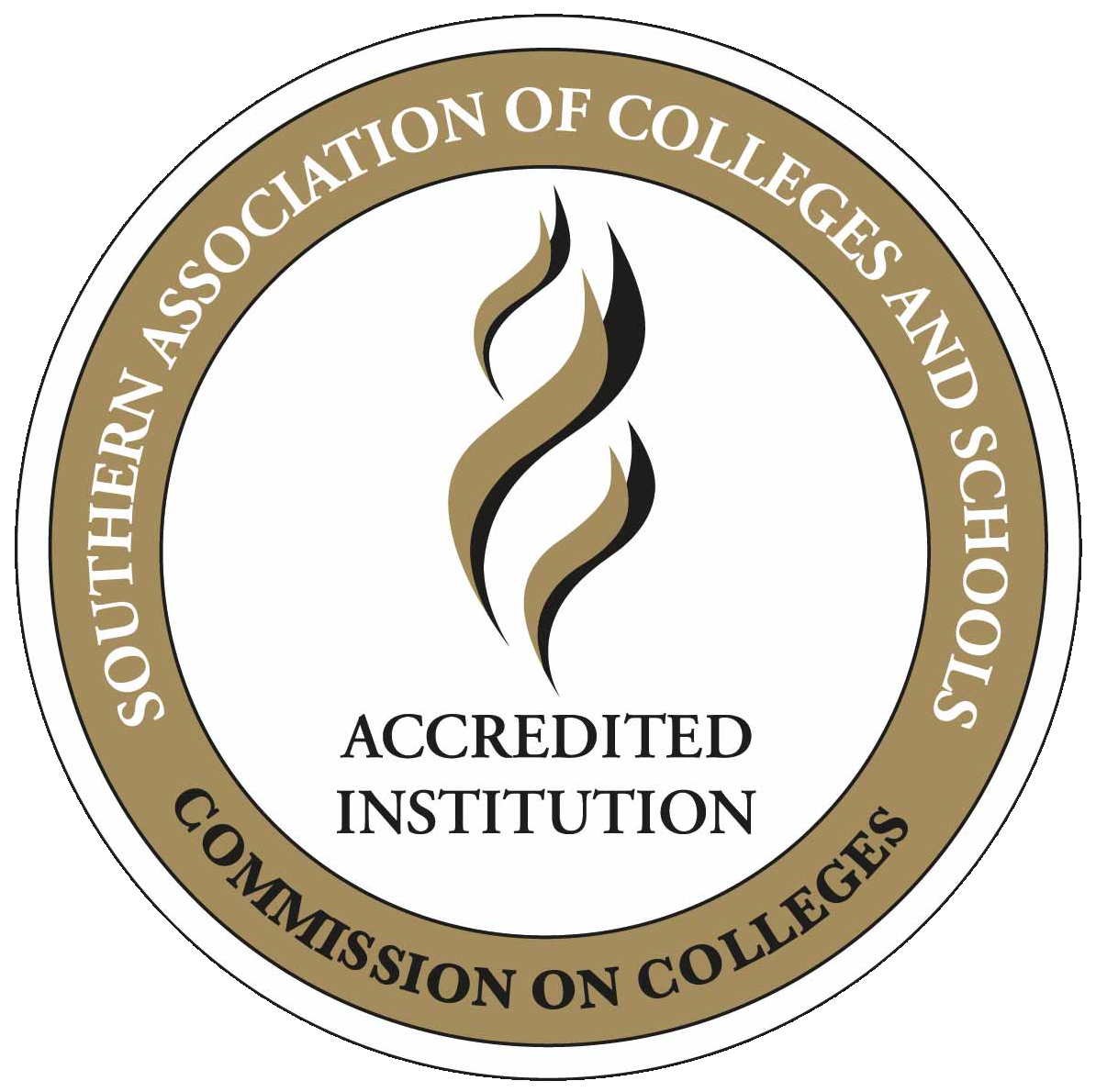Federal regulations require that students receiving financial assistance must maintain satisfactory academic progress toward completion of a degree. A student must maintain satisfactory academic progress as defined by the standards of academic progress policy. Satisfactory progress is not to be confused with “good standing”. A student can meet the Jefferson State Community College requirements of “good standing” and be allowed to enroll but not meet the minimum standards to receive financial aid while enrolled. All students will be monitored for compliance with Federal Requirements for Satisfactory Academic Progress at the end of each term, whether or not the student received financial aid during those periods. At that time, a student will be in good standing, placed on a one semester warning, or placed into a failing SAP status and will be ineligible for continued aid. Students can view the status of their academic progress on their myJSCC account.
Jefferson State Community College will measure a student’s performance for satisfactory academic progress in three areas:
- Completion Rate
- Cumulative Grade Point Average
- Maximum Time Frame
The student must meet all three requirements to remain eligible for financial aid. The Standards of Satisfactory Academic Progress apply for all Title IV financial assistance programs including Federal Pell Grant, Federal Work-Study (FWS), Federal Supplemental Education Opportunity Grant (FSEOG), Federal Direct Loan Program, as well as assistance from the state.
In addition, financial aid recipients must report to the Financial Aid Office when they withdraw from a course or withdraw from the college. Complete withdrawal from school before 60% of the term is completed may result in the student having to repay a percentage of the aid they have received. The formulas used to calculate the refunds and repayments may be obtained from the Financial Aid Office.
Completion Rate
At the end of each semester, a student’s academic progress will be reviewed by comparing the cumulative number of attempted credit hours with the number of credit hours passed. Transfer courses accepted by the institution, Developmental courses, Incompletes, periods where Academic Bankruptcy was applied, and forgiven courses must be factored into the completion rate calculation whether financial aid was received or not.
- Students who have attempted 0-21 semester credit hours must pass 58% or more of the cumulative number of attempted credit hours.
- Students who have attempted 22-32 semester credit hours must pass 62% or more of the cumulative number of attempted credit hours.
- Students who have attempted 33 or more semester credit hours must pass 67% or more of the cumulative number of attempted credit hours.
The following information is considered when evaluating a student’s satisfactory academic progress:
- Withdrawals (W, WP and WF), incomplete (I), in progress (IP), and failure (F) are considered attempted but not passed hours.
- Repeated courses for which the student has been granted academic bankruptcy are included in the calculation of both attempted and passed hours. Financial aid will cover the repeat of a course that a student has previously passed up to one time.
- Audited courses are not considered credits attempted or passed. Students cannot use Title IV funds to pay for audited courses.
- Transfer credits do not count in the calculation of the GPA, but they are included in the calculation of both attempted and passed hours.
Cumulative Grade Point Average
Financial aid recipients must maintain the following required grade point averages according to number of hours attempted. This includes all attempted hours, transfer hours, and developmental work taken, whether or not financial aid was received, or courses were successfully completed.
- Students who have attempted 0-21 semester credit hours must maintain a 1.5 cumulative grade point average (GPA).
- Students who have attempted 22-32 semester credit hours must maintain a 1.75 cumulative GPA.
- Students who have attempted 33 or more semester credit hours must maintain a 2.0 cumulative GPA.
If the student has never attended Jefferson State, then the cumulative GPA from the last college attended will be used. Once the student establishes a GPA at Jefferson State, that GPA will be used to determine eligibility. Grades for developmental courses and periods where Academic Bankruptcy was applied must be factored into the GPA calculation.
Students need to be aware of the following:
- Withdrawals (W, WP, and WF), incomplete (I), in progress (IP), and failure (F) are considered attempted hours and could affect the GPA requirements and your Financial Aid eligibility.
- The transfer GPA from another school is never combined with a student’s Jefferson State GPA. If the student has never attended Jefferson State, the cumulative GPA from the last school attended will be used to determine eligibility.
Maximum Time Frame
The maximum time frame for completing a program of study is 150% of the required length of the student’s specific program. All attempted courses, to include transfer credits accepted by the institution, incompletes, periods where Academic Bankruptcy was applied, forgiven courses, and developmental courses, must be factored into the calculation for Maximum Time Frame. All attempted courses are included whether or not financial aid was received, or courses were successfully completed. A student is no longer eligible to receive financial aid once they have attempted 150% of the number of hours required for their degree or certificate.
Examples:
- If your degree is a 60-hour degree: 60 x 150% = 90 hours maximum time frame. You are eligible for only the first 90 hours of attendance.
- If a student transfers into Jefferson State and has attempted 40 hours of transfer credit from another institution, these hours are included when calculating the maximum time frame for the student’s degree. The student who has 40 hours of transfer credit from another institution and is attempting to complete a 60-hour degree program at Jefferson State must consider the hours they have left to complete their degree. For example: 60 x 150% = 90 – 40 = 50 credit remaining before the student reaches the maximum time allowed for degree funding.
A change in program of study will be allowed. However, aid will be granted only for additional required hours as determined by comparison of the two programs of study. A financial aid recipient may not be paid for more than 30 credit hours of remedial courses. In addition to the above procedures, the maximum length of a student’s program may not exceed 150% of the minimum length required to complete the program.
Financial Aid Warning
The Satisfactory Academic Progress (SAP) of financial aid recipients is reviewed at the end of each academic semester regardless of whether the student receives financial aid. If the student is not making satisfactory academic progress, the student will be placed on a one semester academic warning. A student on an academic warning is eligible to receive financial aid.
The warning is issued when the student does not meet the following SAP requirements:
- Cumulative GPA
- Completion Rate
*There is no warning semester for Maximum Timeframe.
After attending one semester on academic warning, the student must have obtained the required GPA and/or completion rate to remain eligible to receive financial aid.
If after attending one semester on academic warning, the student has NOT obtained the required GPA and/or completion rate, the student will NOT be eligible to receive financial aid. Students must follow the institution’s financial aid appeal policy if they wish to be reconsidered for possible continued eligibility.
Suspension
When a student who is eligible for Title IV federal financial aid funds is suspended, whether the student serves the suspension or is readmitted upon appeal, the student may not be eligible to receive financial aid. A student must maintain satisfactory academic progress as defined by the standards of academic progress policy. If the student does not meet the satisfactory academic progress requirements, the student must follow the institution’s financial aid appeal policy to be considered for financial aid reinstatement.
Approval of the student’s appeal to the admissions committee for readmission does not reinstate the student’s eligibility for financial aid.



